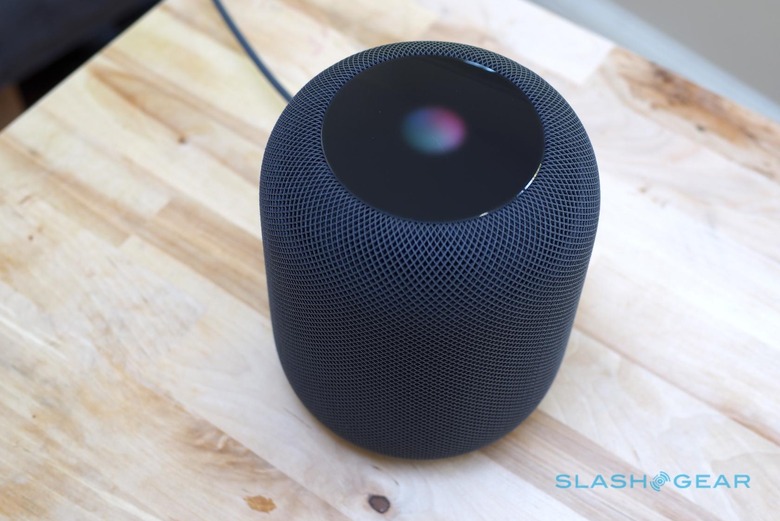Siri Needs These Features To Catch Up With The Competition
The smart speaker market is heating up and it's being driven not just by the "speaker" part but, more importantly, the "smart" part as well. Apple can sing all it wants about the quality of the HomePod's audio experience, but it will only be a matter of time before high-quality Amazon or Google speakers pop up. Siri, in contrast, might have a harder time catching up with its AI rivals. Here are just five features where Siri has clearly lagged behind Amazon Alexa, Google Assistant, and maybe even Samsung Bixby.
Multi-user support
This wasn't much of a concern when Siri was only available on mobile devices. But with the launch of the HomePod, Siri becomes a free-for-all assistant. More than just an opportunity for awkward or comical moments, it could also be a security concern, especially with Siri's ability to read or even send messages, announce appointments, and more. There's also the fact that the HomePod integrates with HomeKit smart home products, which makes the potential security risks even higher.
Context
Multi-user support is also part of a bigger feature that Siri is considerably lacking: context. That can many things in this, ahem, context. For one, Siri doesn't know the context of who is asking it what, a.k.a. multi-user and multi-voice recognition. But it also means knowing the context of questions. That is, follow-up questions. At the moment, Siri isn't exactly smart when it comes to holding a conversation. It has very short-term memory and mostly forgets what you asked after it has answered. Comically, it sometimes even forgets what you asked after it asked you for a clarification or follow up.
—Hey Siri how many quarts are in a gallon?
—What would you like me to convert one gallon to?
—Quarts.
—Quartz is a mineral composed of silicon and oxygen atoms in a continuous framework...
— John Gruber (@gruber) February 14, 2018
Translation
Admittedly, this might be a lesser use case for smart assistants, at least as far as live, on the spot use is concerned. It is, however, a growing one, especially with two of Apple's biggest competitors in this market trying to outdo each other in the ability to translate spoken words on the fly. Google's Pixel Buds, the direct competitor to Apple's AirPods, do this for the Pixel 2. And rumor has it that Amazon is working on giving Alexa such a skill. Siri, unfortunately, is still behind and can only do very basic translations and pronunciations, and only when you ask it to.
E-commerce
When was the last time you asked your smart assistant to buy you something? Never? That's about to change soon. Amazon is, of course, already miles ahead of anyone else in this race, but Google isn't falling behind. Samsung has also added some shopping assistant features to Bixby. That leaves Apple pretty much in the dust, without an e-retail platform of its own or with any partner to do it for them. One might argue that Apple isn't exactly interested in selling people products other than its own stuff, but that can only last it for so long. Like its Apple Music exclusivity on the HomePod.

Third-party ecosystem
The biggest hurdle to Siri's widespread use isn't exactly the lack of devices or even a smart speaker. It's Apple's initial refusal to let others into its garden, followed by a slow-paced welcome. It was only last year, six years after it launched, that Apple finally provided a framework for third-party developers to use to integrate with Siri. And yet SiriKit remains barely used and has a fraction of the "skills" offered by Amazon Alexa or Google Assistant. It was as if Apple only begrudgingly released the framework after it realized how it was quickly losing ground in an arena it itself started and, for a time, led.
Wrap-up
It is almost tragic to see Siri, the pioneering smart assistant, become the underdog in the race. But like any good underdog story, it doesn't end at the bottom. If anything, Apple has both the resources and the stubbornness to turn the narrative around and rewrite history yet again. That is, if it can get over its current stubbornness of not accepting how far behind it has come.

